116 start with N start with N
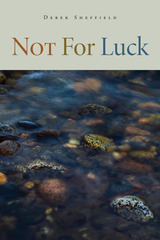
In Not For Luck, Derek Sheffield ushers us into the beauty and grace that comes from giving attention to the interconnections that make up our lives. In particular, these poems explore a father’s relationship with his daughters, which is rooted in place and time. There is tenderness and an abiding ecological consciousness, but also loss and heartache, especially about environmental degradation. We are invited to listen to the languages of other beings. Through encounters with a herd of deer, a circle of salmon in a mountain creek, two bears on a stretch of coast, a river otter, and a shiny-eyed wood rat, these poems offer moments of wonder that celebrate our place as one species among many on our only earth.
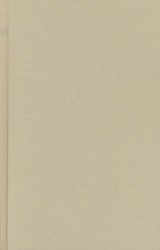
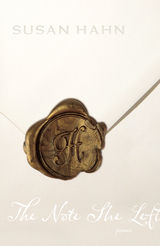
Hahn’s new collection wrestles with the elemental and enduring challenges of the human condition: What can we use from our spiritual heritage? How should we find relief? How, after it all, do we live? The poems are presented as a letter to the world from a woman preparing to leave it. In four sections—“The Bells,” “The Crosses,” “Widdershins,” and “Afterwor(l)d”—she contrasts the hope against the dark that is embodied by an amulet or cross with the abased resignation of torture, failed prayers, and witchcraft. Though Hahn’s vision is a dark one, its dramatic emotional depth speaks to a human power that, though damaged, can still engage.
from The Crosses (V)
Cross my fingers, cross my heart,
arms extended, legs together, not apart,
I make of myself a cross.
In my pockets bright blue beads,
small clay gods, scarabs,
four-leaf clovers, bejewelled mezuzahs.
In my hat cockleshells
to exorcize the demons,
to keep hidden the seventh chakra,
the tonsure, the bald compulsion.
Cross my fingers, cross my heart,
arms extended, legs together, not apart.
In my ears little bells of confusion,
to frighten away eyes of the evil.
On my breast a foul sachet
to repel the lick of the Devil.
Cross my fingers, cross my heart.
In my window a glass witch ball
to guard against the shatter
from intruders.
Cross my fingers.
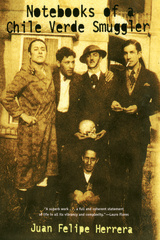
Notebooks of a Chile Verde Smuggler is a river of faces and phrases, jottings and reflections—a personal pilgrimage and collective parade of love, mock-prophecy, and chiste. Tuning in voices from numerous time zones, languages, and minds, Herrera recalls his childhood and coming of age, his participation in the Chicano Movement, and the surreal aspects of postmodern America. He uses broad strokes to paint a historical, social, and familial portrait that moves from the twilight of the nineteenth century to the dawn of the twenty-first, then takes up a finer brush to etch the eternal tension between desire and frustration, hope and disillusionment, violence and tenderness.
Here are transamerican sutras spanning metrocenters from Mexico City to San Francisco, or slinking across the border from Juárez to El Paso. Outrageous, rhythmic lists—"Foodstuffs They Never Told Us About," "Things Religion Makes Me Do"—that fire the imagination. Celebrations of his Plutomobile that "runs on ham hawks & bird grease," and of Chicano inventions such as cilantro aftershave and "the art of eating Vicks VapoRub with your dedos."
Pushing forms to the edge of possibility while forcing readers to rethink reality as well as language, Herrera invokes childhoods and neighborhoods, stand-up clowns and Movimiento gypsies, grandmothers of the buñuelo kitchen and tragicomic soliloquies of dizzy-headed outcasts of paradise. Notebooks of a Chile Verde Smuggler is a crucible of flavorful language meant to be rolled lazily on the mind's tongue—and then swallowed whole to let its hot and savory sweetness fill your soul.
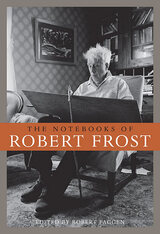
Robert Frost is one of the most widely read, well loved, and misunderstood of modern writers. In his day, he was also an inveterate note-taker, penning thousands of intense aphoristic thoughts, observations, and meditations in small pocket pads and school theme books throughout his life. These notebooks, transcribed and presented here in their entirety for the first time, offer unprecedented insight into Frost's complex and often highly contradictory thinking about poetics, politics, education, psychology, science, and religion--his attitude toward Marxism, the New Deal, World War--as well as Yeats, Pound, Santayana, and William James. Covering a period from the late 1890s to early 1960s, the notebooks reveal the full range of the mind of one of America's greatest poets. Their depth and complexity convey the restless and probing quality of his thought, and show how the unruliness of chaotic modernity was always just beneath his appearance of supreme poetic control.
Edited and annotated by Robert Faggen, the notebooks are cross-referenced to mark thematic connections within these and Frost's other writings, including his poetry, letters, and other prose. This is a major new addition to the canon of Robert Frost's writings.
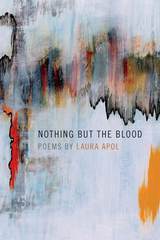

In this collection, the essays range from blistering manifesto to deep historical dives to gentle classroom guidance to considerations of the poets of James Merrill and Agha Shahid Ali, moving between the theoretical and the practical. Nothingism is both deeply personal and highly erudite, providing an engaging and scholarly account of reading, writing, and teaching poetry as our world continues its unsupervised lurch toward digital culture.
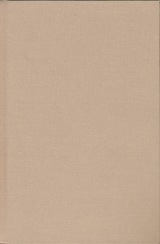
A generous introduction to one of the key literary figures to emerge from Brazil in the second half of the twentieth century, this book offers English-speaking readers an ample selection of this prodigious writer's celebrated poetry and widely influential critical work. As a poet and as a cofounder of the renowned group Noigandres, Haroldo de Campos has made a unique and substantial contribution to the theory and practice of experimental writing, particularly the form known as concrete poetry, and to the Latin American avant-garde as a whole. These contributions, acclaimed worldwide by figures such as Umberto Eco, Jacques Derrida, Octavio Paz, and Guillermo Cabrera Infante, can be observed unfolding here, first in poetry selections ranging from de Campos' early work before concretism through his most recent production; then in theoretical texts that trace his evolution as a critic from an early interest in baroque and modernist writers to his development of an innovative model for reading, translating, and writing. This second, critical section of the book includes de Campos' encounters with the tasks of translating and reading some of the most important texts of Eastern and Western culture-from Ecclesiastes to the No play Hagoromo, from Dante to Paz-thus charting a genealogy of modern literature.
Together, these poems and critical writings afford English-speaking readers their first sustained exposure to a unique personality within the international avant-garde, a writer described by Brazilian poet João Cabral de Melo Neto as "that wonderful thing: / a poet and a translator who came to literature armed with an enviable / knowledge of the literary phenomenon."
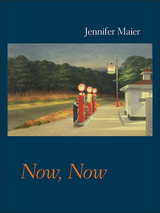
Moving with quantum ease through the porous membranes of the past, present, and future, the speaker wonders: What is each moment but the swirling confluence (or shy first meeting) of past and future—of what happened, and what-has-not-yet-happened but will?
Such phenomenological questions are sparked by ordinary events: a friend's passion for jigsaw puzzles; an imagined conversation with a neighbor's dog; a meditation on the uses of modern poetry. Here, in language at once elegant and agile, intimate and universal, the author probes beneath the surface of happenstance, moving with depth, humor, and compassion into the heart of our shared predicament: that of loving what we cannot keep.
But if time in these poems is relative, it bends toward grace—even, as the title suggests, towards consolation. Taken together, the poems invite us to raise a glass to the way we're each "held light and golden in Time's mouth," and to savor something of the eternal—distilled, sparkling, already lost—inside every now.
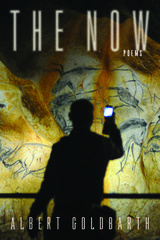
Between poems that consider the disappearance of language in an age of digital/binary communication, and poems that mourn the disappearance of fellow poets and artists, this collection attempts to stand on a nano-second that looks both backward and forward in time: the ever-shifting "now."
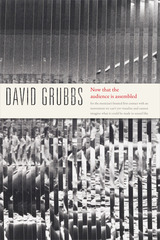
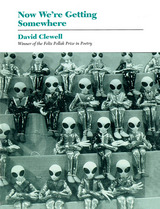
This is a book of sustenance, of fresh assurances that come to us—ready or not—out of the blue of this spirited poet’s most engaging work yet.
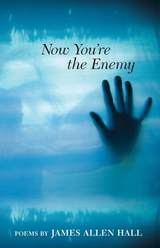
A family in the aftermath of violence These raw and powerful poems have at their heart the charged, archetypal figure of the mother. Conflicted by the twin desires of self-destruction and self-preservation, this mother is both terrible and beautiful. This compassionate, nervy collection of poems shows a family in the aftermath of violence. James Allen Hall explores themes of loss, the intersection of grief and desire, and the ways in which history, art, and politics shape the self. We meet the speaker's mother in many guises-she is the rogue Republic of Texas, the titular character of Rosemary's Baby, a nineteenth century artist's model, a fake entry in an encyclopedia, the lost queen of King Lear. With clarity, wit, and compassion, the speaker discovers the facets of his mother-her own abuse, her years of adultery, her struggle to remain independent-so that he may come to terms with his own sexuality. By seeing his mother in these guises, the speaker understands identity as it develops along and is reclaimed from the most repressive of social margins. Hall's poems twine the autobiographical impulse with a deeper emotional, somewhat surreal, temperament. This is a book as much about the way we tell our stories as it is about the stories we tell. Now You're the Enemy negotiates narrative in order to refashion the self-as a way to survive, to learn the redemptive power of love.
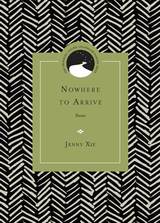
At the chapbook's center are two long poems, titled "Phnom Penh Diptych: Wet Season" and "Phnom Penh Diptych: Dry Season," that examine the escapist narratives that draw tourists and expatriates to Cambodia, and the speaker’s own privileged positioning.
On a formal level, the poems in Nowhere to Arrive make room for the unsaid and that which cannot be articulated. Here, we have a vocabulary of silence alongside stark imagistic juxtapositions, poems that celebrate compression and the force of paratactic constructions. Attentiveness and concentration emerge as virtues, as the speaker surveys the vast territory of the present with a wakeful gaze.

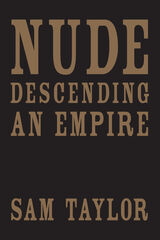
READERS
Browse our collection.
PUBLISHERS
See BiblioVault's publisher services.
STUDENT SERVICES
Files for college accessibility offices.
UChicago Accessibility Resources
home | accessibility | search | about | contact us
BiblioVault ® 2001 - 2024
The University of Chicago Press









